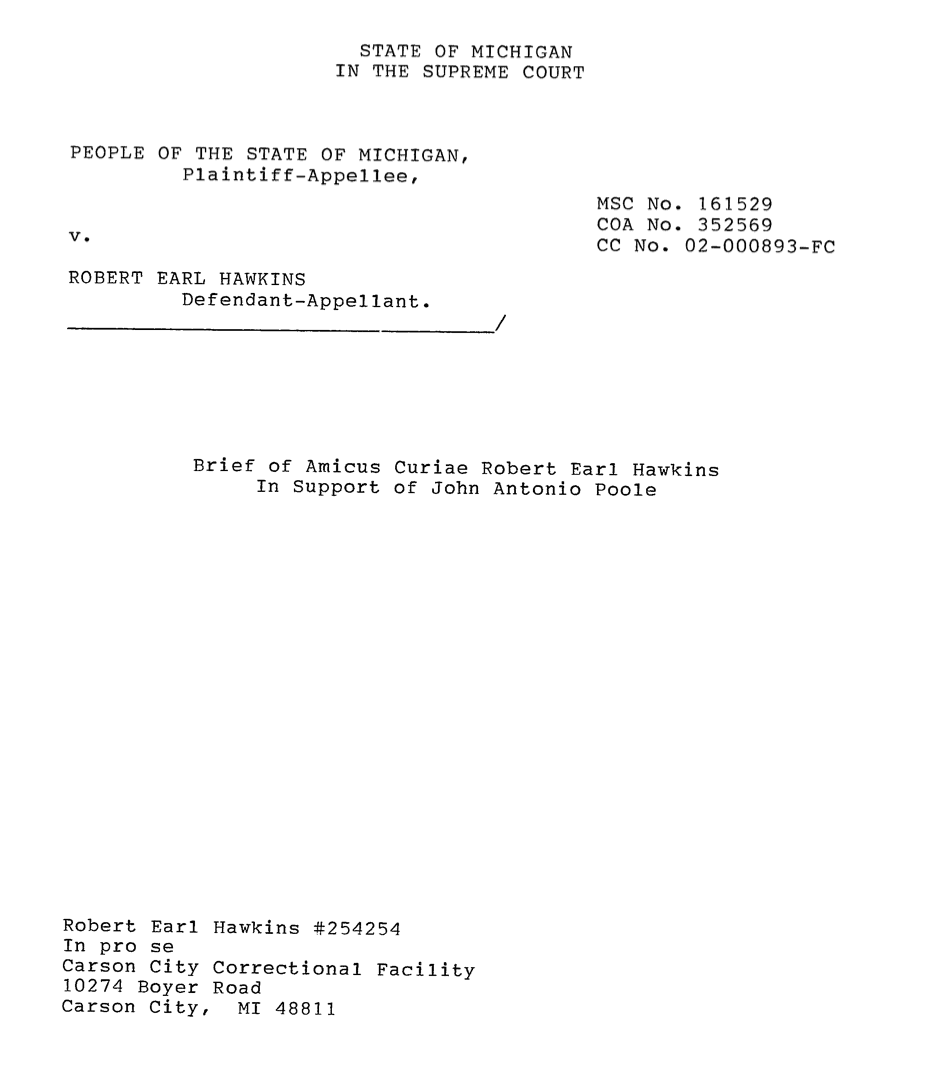
Summary of Argument
In Miller v. Alabama, The United States Supreme Court ruled that mandatory life without parole sentences are unconstitutional for individuals who were juveniles at the time of their offenses under the Eighth Amendment's prohibit on cruel and unusual punishment. 567 US 460, 465; 132 S Ct 2455; 183 L Ed 2d 497 (2012). The Court, relying on the same underlying scientific research used to bar the death penalty for juveniles, held that children are less culpable than their adult counterparts because of their immaturity, impetuosity, susceptibility to peer influence, and greater capacity for change. Id. Further research now indicates that young people retain their characteristics beyond age 18. Because young adults possess the same adolescent characteristic that the Supreme Court has determined reduce criminal culpability, mandatory life without parole sentences for this population are also disproportionate under both Eighth Amendment and Article 1, sec 16 of the Michigan Constitution. This Court should therefore grant Mr. Poole's application for leave to appeals and extend Miller and Montgomery's protections to defendants who were under 21-year-old at the time of the offense was committed.